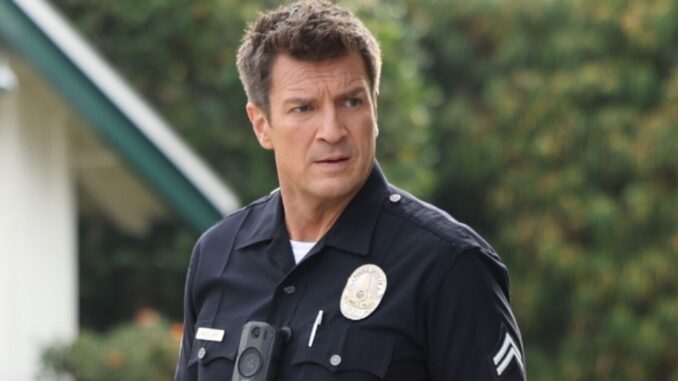
The Korean drama “Backstreet Rookie” has recently come under fire for content that many viewers consider offensive. While initially praised for its lighthearted romantic comedy elements, social media backlash has grown due to problematic humor and controversial portrayals. This article delves deep into why this K-drama sparked such criticism and what fans are saying.
Plot Overview of Backstreet Rookie
Backstreet Rookie follows the story of Ji Chang Wook’s character, a convenience store manager, and his complicated romantic interactions with a young part-time worker played by a supporting actress. The series combines slapstick comedy, romantic misunderstandings, and everyday life drama in a bustling urban setting.
While the plot is designed to be comedic, some viewers argue that certain jokes cross the line, making parts of the show uncomfortable or offensive.
Why Viewers Find It Offensive
Problematic Humor
Many fans highlight that the show’s humor relies on inappropriate sexual jokes, stereotypes, and unwanted advances, which can feel exploitative rather than playful.
Gender Dynamics
Critics argue that Backstreet Rookie portrays women in an objectified manner, reducing female characters to mere sources of comedic relief rather than fully fleshed-out individuals.
Insensitive Scenes
Scenes that were intended as humorous have been interpreted as demeaning, particularly in their depiction of workplace harassment and social stereotypes.
Social Media Backlash
Trending Hashtags and Viewer Outrage
Fans took to Twitter, Instagram, and Korean forums, using hashtags like #BackstreetRookieControversy and #StopOffensiveKdramas to express dissatisfaction.
Comparisons with Other K-Dramas
Viewers compare Backstreet Rookie unfavorably with more progressive series, noting that while other dramas balance comedy with respect, this show leans heavily into shock value and insensitive tropes.
Impact on Lead Actors’ Reputations
Ji Chang Wook
Ji Chang Wook, despite being a popular and talented actor, has faced criticism by association. Fans expressed disappointment that his star power didn’t elevate the show’s ethical standards or comedic sensibility.
Supporting Actress
The young supporting actress received both praise for her performance and criticism for being placed in situations that many consider exploitative.
Critical Reception vs. Audience Reaction
Critics
Media critics have noted that the show fails to modernize its comedy, relying on outdated tropes that clash with contemporary sensibilities.
Audience
Fans are split: some enjoy the slapstick and romance, while others believe that certain elements cross a line, making it hard to enjoy the series.
Cultural Sensitivity in K-Dramas
Importance of Respectful Humor
Modern K-dramas are increasingly praised when they address sensitive topics thoughtfully. Backstreet Rookie’s failure to do so contrasts sharply with these examples.
Global Audience Expectations
With international viewership growing, K-dramas must consider cultural differences and broader sensibilities, which the show seemed to overlook in several episodes.
The Role of Social Commentary

Missed Opportunity
Critics argue that Backstreet Rookie could have used its platform to provide commentary on modern workplace dynamics and gender equality but instead defaulted to humor that reinforces stereotypes.
Lessons for Future Productions
The backlash highlights the importance of incorporating sensitivity readers, diverse writers, and consultants to ensure that comedy does not alienate viewers.
Viewer Recommendations
Why Some Still Watch
Despite the controversy, some fans continue to watch for light entertainment and character dynamics, appreciating parts of the narrative that remain charming.
Guidance for New Viewers
New viewers are advised to approach the series with awareness of the controversial content and to understand that it may not align with modern sensibilities.
Comparing With Other Romantic Comedies
Successful Examples
K-dramas like Crash Landing on You and Itaewon Class demonstrate that romantic comedy can be both engaging and respectful, highlighting the gap in Backstreet Rookie’s approach.
What Went Wrong in Backstreet Rookie
The combination of over-the-top slapstick, questionable romance tropes, and stereotypical humor led to divided opinions among viewers.
Lessons for the K-Drama Industry
Adapting to International Standards
Global audiences expect shows to handle humor and social commentary responsibly, particularly in the age of social media scrutiny.
Balancing Comedy with Sensitivity
Future productions can learn that edgy humor must be carefully balanced with character respect, narrative integrity, and cultural sensitivity.
Conclusion
Backstreet Rookie has ignited debate about what constitutes offensive content in modern K-dramas. While some viewers enjoy its lighthearted humor, others criticize it for sexist jokes, inappropriate scenes, and outdated comedic tropes. The backlash highlights the need for sensitivity in storytelling, especially as K-dramas reach a global audience. Balancing humor with respect, character depth, and awareness of social norms is essential for future productions.
